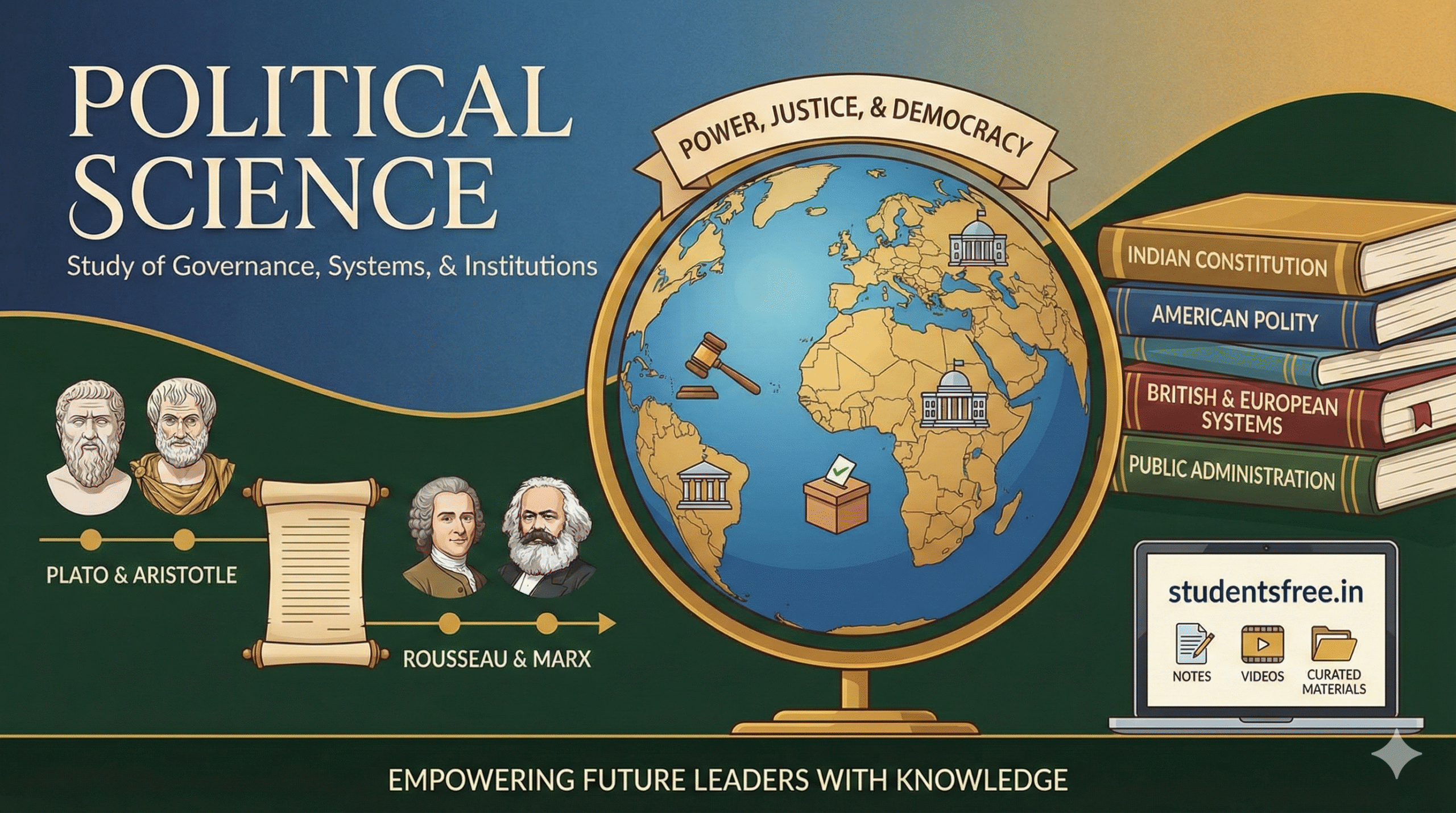Political Science

Political Science is the study of governance, political systems, and institutions that shape societies. It explores power dynamics, authority, and justice, tracing its evolution from ancient thinkers like Plato and Aristotle to modern theorists like Rousseau and Marx. These intellectuals have profoundly influenced political ideologies and systems across the globe.
The discipline examines democratic institutions, their roles, and their functions in ensuring public welfare and justice. Indian universities focus on diverse topics, including American, Indian, British, and European polities, alongside Indian administration, local self-government, and the Indian Constitution—a cornerstone of democracy. These studies provide students with insights into governance, policymaking, and citizen participation.
At ‘studentsfree.in,’ we aim to enrich students’ learning experiences by offering comprehensive resources, including notes, videos, and curated materials aligned with university syllabi. Our mission is to empower the next generation with knowledge and understanding to become informed citizens and future leaders in shaping society.
